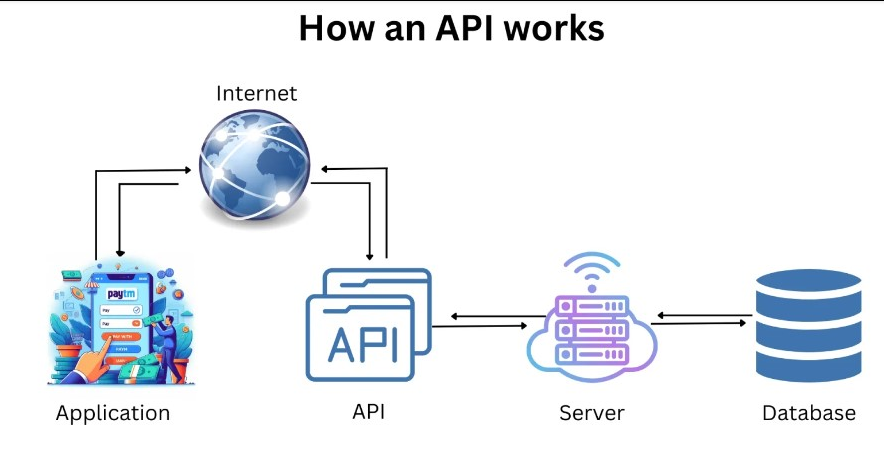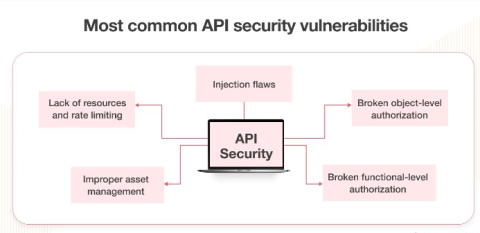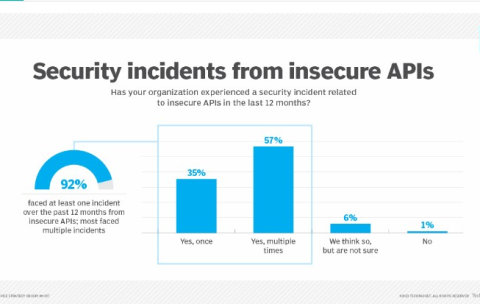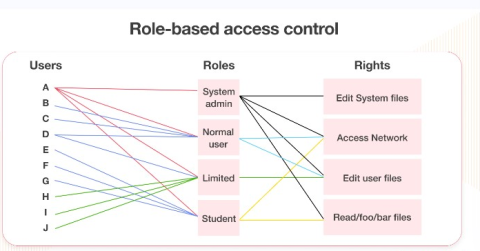Why API Security is Essential for Thriving B2B Partnership

Why API Security is Essential for Thriving B2B Partnership
API security allows businesses to protect sensitive data and makes integration easier while also instilling trust in partnerships. This, when combined with strong API security allows communications to occur without violations and encourages and protects fruitful collaborations.
Application programming interfaces (APIs) are vital components of business-to-business (B2B) relations as they enhance the ability of systems to integrate and facilitate information movement. However, without robust API security companies are open to the exposure of their data, loss of operational continuity, and distressed business partners.
This article explains why API security is essential emphasizing confidentiality, sensitive data protection, risk countermeasures, and their relevance in achieving partnership objectives.
The Role of APIs in B2B Ecosystems
APIs provide instant communication and interactivity between different business systems and apps, this permits organizations to exchange information and conduct operations automatically without any human being involved.
For instance, within the logistics sphere, businesses are able to track their shipments and manage their inventory in real-time, and in the area of finance, APIs facilitate transactions and make payments across partners seamless and thus enhance collaborations.

APIs do provide automation of manual workflows and secure data transfer. They enable information sharing and automation of functions thus reducing manual work and time wastage. This, in a way, empowers businesses and/or organizations to make instant decisions on changes that may be necessary to improve processes, including the changes necessary to meet the expectations or demands of the consumers’ needs.
Furthermore, APIs can act as the building blocks for new projects and value-added services development through cooperative relationships. This allows companies to collaborate with external developers and create new products targeting unmet needs.
API markets and cooperation platforms are the ecosystems necessary for such cooperation and provide the opportunity to do business and create new opportunities offering original integrated solutions that meet the needs of customers.
The Security Risks of APIs in B2B Relationships
The API security risks include the vulnerability of important resources to exploitation, subsequent expansion of the threat into the networked systems, and failure of an organization to fulfill the data inheritance responsibilities. These risks are capable of causing funds loss, damage to the reputation as well as changes to the partnerships, and such risks should be well understood and addressed by organizations.

APIs have a number of security vulnerabilities including poor authentication, broken access control resulting in highly sensitive information being available to unauthorized users, and leakage or unintended exposure as a result of improper control or transmission of information.
The API breach at Cox Communications in June 2024 serves as a case in point where millions of modems were left vulnerable to hackers. Researchers found that API endpoints had no authentication in place, allowing attackers posing as support agents to access sensitive customer and account information. This demonstrates the dire effects of poor API security within the context of interlinked systems.

In 2023, a study conducted by the Enterprise Strategy Group indicated that many organizations had now experienced several cyber security breaches due to API security negligence.
Amplified Threats in B2B Ecosystems
The scope of potential attacks expands with connected B2B systems. A single crack API might initiate a chain reaction of API attacks through interlinked partners disrupting various operational levels. Such interdependencies make the security of an organization’s API a top priority.
Business Ramifications Associated with Non-Proper Handling of API Security:
- Financial losses from the above data breach and recovery expenses.
- Workflow lags and service provision interruptions that concern organizational activities.
- The credibility of the corporate brand is affected resulting in a loss of confidence amongst its partners.
For instance, when there is an API breach and authorization is wrongfully obtained to access private files about the clients, it increases stress on the partners or shatters the partnership thus hindering the partnership.
Regulatory and Compliance Risks
High levels of API security failure related to compliance with laws such as GDPR, CCPA, or HIPAA could lead to extremely hefty fines and litigation complications. The positioning of APIs in compliance with these directives not only provides seamless security of data but also shields organizations from being invasive and probing into their business relationships.
The Importance of API Security in Strengthening B2B Partnerships
All successful partnerships are built on trust and between firms, APIs are the gateways through which sensitive data is shared. Robust API security measures, such as authentication and encryption ensure that data remains protected from unauthorized access.
When partners are assured of the safety of their data there is greater openness which enhances the possibility of securing future collaboration, making security a shared priority in the relationship.
Access to Secure APIs is beneficial not only during partner dealings but also for smooth operations. They block any malicious meddling that may bring about downtime or service outages, which means seamless interactions among partners at all times. Such dependability is necessary for processes, timely deliveries, and promises to be fulfilled, as it is key in ensuring that B2B partnerships are sustained.
The money and time lost as a consequence of the failure of API security can be catastrophic. For instance, internally insecure APIs have caused firm losses of millions and destruction of trust. These can be avoided by emphasizing API security, ensuring that corporate entities during partnerships do not question their integrity or that of their systems.
Actionable Strategies to Elevate API Security
Since APIs have become critical tools for conducting business activities, API security and protection of sensitive information as well as the trust of business partners is extremely important.
Here are some powerful tactics that can be applied to improve the security of your APIs:
- Strong Authorization and Authentication
- Policy Allowances for Specific Actions
- Active Monitoring of Threats and Intrusions
- Routine API Audits and Vulnerability Assessments
- Encrypted Connections to Transfer Sensitive Data
- Instilling Security As A Habit
- Application of Firewalls And API Gateways
1. Strong Authorization and Authentication
Introduce the use of multi-factor authentication (MFA) systems as these add dimension of security. Tokenization and OAuth are other tools that should be employed to ensure that only authenticated users and systems can interact with APIs.
2. Policy Allowances for Specific Actions
RBAC should be used while restricting access to APIs so the user roles are the determinant of the access. This approach ensures very few chances of exposure as users and systems will have access only to what they need, minimizing the chances of a breach.

3. Active Monitoring of Threats and Intrusions
Use AI tools and monitoring to detect abnormal changes. These tools enable the prompt diagnosis of threats and the quick mitigation of an attack so that their potential impact is limited.
4. Routine API Audits and Vulnerability Assessments
Scheduled automated scans of your APIs for weaknesses, and security audits to find security deficiencies should be implemented. Assessments should be done regularly so that remedial measures can be employed whenever there are risks to the security of the APIs.
5. Encrypted Connections to Transfer Sensitive Data
There is a need to encrypt data during transmission and even when stored so that chances of breach are reduced. This ensures that even in instances where data is intercepted it is in a form that is difficult to understand hence protecting sensitive information.
6. Instilling Security As A Habit
A security culture should be embedded in all members of a team. Training and awareness programs about the API security importance can be conducted for the entire organization starting from developers to chief executives.
7. Application of Firewalls And API Gateways
An API gateway is employed to control traffic as well as control what requests are being sent. When combined with firewalls, this improves security by preventing bad traffic from reaching your systems.
Broader Benefits of Strong API Security
API security has more beneficial aspects than just protecting sensitive information. Such laws as GDPR, CCPA, or others can also be interpreted as opportunities. It is known that such laws are very strict and that data management for businesses requires great precision.
Good API security helps organizations mitigate those legal worries as it secures data transfer mechanisms and processes from causing legal and financial losses. This also increases the company’s image as a trustworthy entity.
Better API security enhances an organization’s ability to respond to an ever-changing threat landscape as well. There is no doubt that cyber threats are rising, which means businesses must take even further action to avoid being left behind.
In an environment with tight API security, businesses can respond to threats within a short time span thereby minimizing the effects of the attacks. It also speeds up the effective recovery of systems and ensures the continuity of business activities even when there are cyber-attacks. This is a necessity for businesses that utilize APIs for daily transactions and communication.
Lastly, a secure API ecosystem encourages innovation without fear. Companies need to provide new products, services, and solutions due to the healthy competition existing in the market. However, the anxiety of data release can sometimes bring about a change in the evolution rate.
API security allows companies to collaborate comfortably and easily since their data is secured. Such a reprieve from security concerns promotes expansion and development because companies feel comfortable seeking growth opportunities in the knowledge that they are securely positioned to do so.
Building a Secure Foundation for Successful B2B Partnerships
Secure APIs strengthen B2B relationships. The criticality of this aspect cannot be stressed enough, as trust earned through the protection of sensitive data, compliance with standards, and risk management enables other businesses to invest their worth in long-term relations with that company. This, in turn, fosters innovation as well as wider security in the long run.
API security is no longer just a requirement in the modern world, but rather an avenue for competitive advantage in any collaboration that seeks success.
